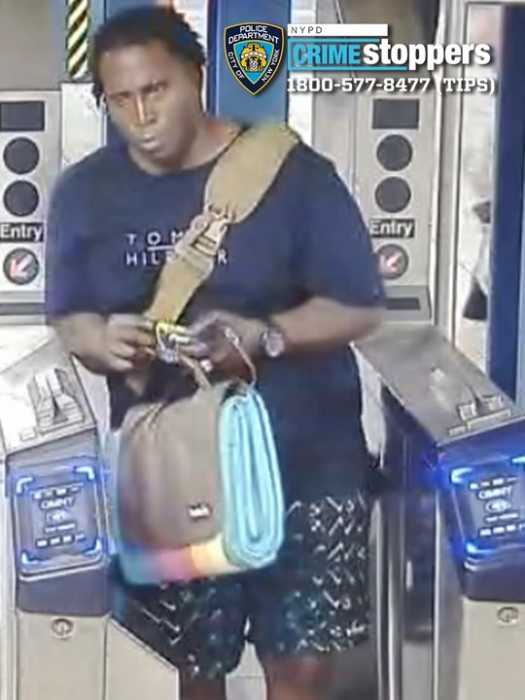Letter Marks To Identify Unsafe Coaches
Sen. Charles E. Schumer announced that legislation requiring bus companies to disclose their safety ratings to passengers passed the Senate last Wednesday, Mar. 14, as part of the Surface Transportation Bill.
Schumer originally proposed the legislation last year in response to numerous fatal crashes involving the discount tour bus industry, including a crash in the Bronx that left 15 dead. The proposal would ensure that passengers have an accurate representation of the company’s safety record when selecting their carrier.
The senator’s plan would also require the Federal Motor Carriage Safety Administration (FMCSA) to create clear and understandable safety ratings to be posted on buses and at terminals, and require ticket sellers and bus companies to make their full safety record and history easily accessible at the point of sale. Schumer is urging the FMCSA to make that safety rating plan a letter grade system, similar to that used in New York City restaurants.
The transportation bill also contains numerous other provisions which will allow federal regulators to crackdown on companies and truly raise the bar for safety in the industry. Schumer praised the Senate for passing his legislation and urged the House to pass it as well.
“[T]he Senate gets an ‘A’ for passing this crucial bill that will finally alert passengers about bus companies safety records before they buy a ticket, and I urge the House to make the grade and pass the legislation immediately,” said Schumer. “For too long, bus passengers have been in the dark when it comes to bus safety, but now we’re closer than ever to bringing the same great letter grade system we have for New York City restaurants to the bus companies all across the country and providing passengers with the information they need to stay safe.”
Last March, a low-cost carrier heading from Connecticut to Chinatown crashed between the Bronx and Westchester, killing 15 passengers. That crash followed the deadly crash in Syracuse from 2010, in which the bus driver was distracted by a GPS unit and crashed into an overhead bridge, killing four people. Late last year, an Albany bus company called Double Happyness Travel was continuing to serve passengers who were unaware of the company’s dismal safety record and flagrant violations.
Despite the poor safety records of some bad actors in the discount tour bus industry, Schumer said, it is very difficult for passengers to get an accurate picture of safety records of these companies. Though the FMCSA currently has a ranking system on its website, the database is difficult to navigate and the rating system is not easy to understand, he noted.
In the wake of those crashes, Schumer introduced legislation to shine a light on the safety record of motor carriers, so that passengers can be fully informed when they book a ticket for a trip, and today that legislation passed the full Senate. Under the plan, the FMCSA would be required to determine the safety of all carriers using a ‘simple and understandable rating system that allows motorcoach passengers to compare the safety performance of motorcoach operators.’
Schumer said that by providing a clear rating, passengers would be better informed about the safety of the buses before they purchase tickets and would be able to make a more informed decision as to which carrier to use. The system would also reward companies with strong safety records and serve as an incentive for companies to improve their safety records.
The proposal would also require the FMCSA to make sure the safety scores of bus companies that serve urban areas, like the New York City to Albany route, are updated at least once a year.
Finally, the legislation would require any entity that sells bus tickets, both companies themselves and third-party brokers, to clearly display the legal name and Department of Transportation identification number so that customers can review the full safety record of any company before they purchase tickets.
Currently, customers would have to navigate a difficult website and spend time tracking down the identification number for their potential bus carrier on their own, in order to locate the safety information.
Under Schumer’s legislation, the sellers would also be required to provide a link to the DOT website that contains all of the relevant safety filings for bus companies, making the safety information easily accessible.
The transportation bill also contains other critical measures, which would improve the safety of the intercity bus industry. Specifically, it would give FMCSA enhanced enforcement authority including increased civil penalties for violations of out of service requirements, stronger testing and registration requirements to prevent bad actors from getting into the industry in the first place, stepped vehicle safety inspections and the requirement that all motorcoaches have Electronic On- Board Recorders (EOBRs) which monitor to make sure drivers are not violating hours of service rules intended to keep fatigued drivers off the road.
To improve driver fitness, the bill would require better commercial driver training and the creation of a National Commercial Motor Vehicle Medical Registry to ensure that only medically qualified drivers are on the road. In addition, the bill would require that motorcoaches have safety belts, anti-ejection glazing windows to prevent passengers from being easily thrown outside the motorcoach, strong, crush-resistant roofs that can withstand rollovers, improved protection against fires and better training for operators in the case of fire.
Finally, the bill would allow federal regulators for the first time to stop buses for en route inspections and gives inspectors more authority to crack down on unsafe carriers – often called ‘reincarnated carriers’- who are put out of service one day and return under a new name the next. Both of these authorities were cited in the report on bus safety commissioned by the National Transportation Safety Board (NTSB) at Schumer’s request.


































